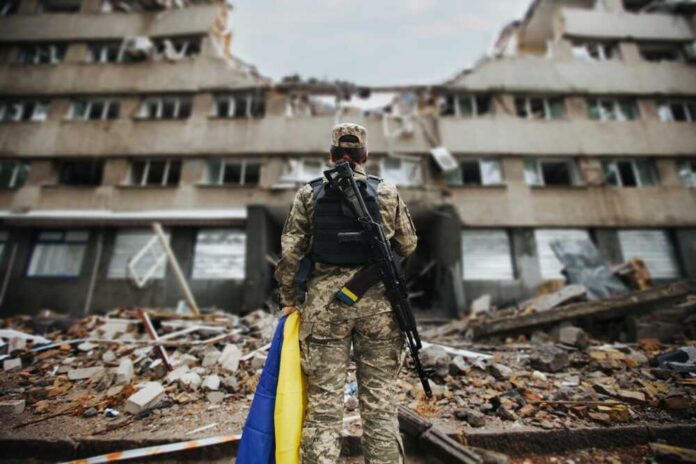
Julianne Smith, the U.S. ambassador to NATO, said this week that she doesn’t expect the treaty organization to extend an invitation for membership to Ukraine when the group meets this summer in Washington.
As she said on a call with reporters ahead of the defense ministers’ meeting last week:
“As for the summit this summer, I do not expect the alliance to issue an invitation at this juncture.”
For the last two years, Ukraine has been fighting back Russia’s invasion. The country has made it clear time and again that it would like to become a member of NATO.
Many officials within Ukraine, as well as many other allies in Eastern Europe, have been pushing for Ukraine to receive an invitation. These countries have all acknowledged, of course, that Ukraine couldn’t officially join NATO while they were still involved in a war with Russia.
That’s a main concern of many NATO countries, as part of the alliance’s agreement is that if one member country is attacked, all other member countries must come to their defense. That’s not something that many NATO countries would want in terms of the ongoing Russia-Ukraine war.
Last year, many leaders of NATO said that Ukraine would certainly have a future in the alliance, though they didn’t officially say that they would be issuing a formal invitation. They also didn’t provide a definitive timeline on when that invitation might be coming.
Smith commented:
“We’ve worked very hard since the Vilnius summit last year to move out on a number of steps to continue to help our friends in Ukraine with the necessary reforms inside their own country to move closer to Euro-Atlantic integration.
“And we continue to focus first and foremost on supporting them in the current fight and ensuring that they can prevail on the battlefield.”
While she said she doesn’t expect a formal invitation for Ukraine to come this summer, Smith did say that there was a path forward. She explained:
“What I am expecting allies to do is to construct a bridge to membership by offering Ukraine a deliverable that will enable them to become even closer to this alliance.”
Smith didn’t expand on what that “deliverable” might be for Ukraine, she did expand to say it would “institutionalize” the bilateral support to Ukraine that has, in the last two years, expanded considerably.
Many NATO nations have been supporting Ukraine in its defense efforts over the last two years by sending financial and military help. NATO even held at NATO-Ukraine Council, at which they invited Volodymyr Zelenskyy, the president of Ukraine, to come to Washington to “lock arms with him,” in a way that shows Russia that “NATO allies aren’t going anywhere.”
As Smith said:
“We’re not looking away; we’re not growing impatient. We will stand with Ukraine for as long as it takes.”
So, even though Ukraine doesn’t look like it will be an official NATO member anytime soon, the country can certainly rely on member states to continue to support them in major ways.













